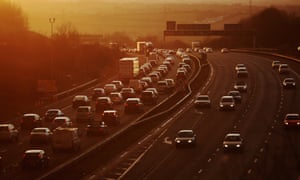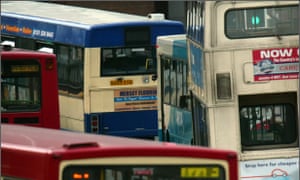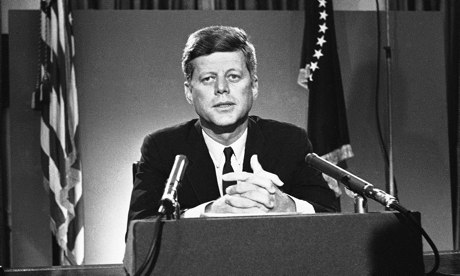'People will forgive you for being wrong, but they will never forgive you for being right - especially if events prove you right while proving them wrong.' Thomas Sowell
Search This Blog
Monday, 8 July 2024
Thursday, 28 December 2023
Thursday, 20 July 2023
A Level Economics 36: The Assumptions of Perfect Competition
Perfect competition is a theoretical market structure characterized by several key features and assumptions. In a perfectly competitive market, there are many buyers and sellers dealing with identical or homogenous products. Each firm is a price taker, meaning it has no influence over the market price, and there are no barriers to entry or exit for new firms. Additionally, perfect information is assumed, implying that buyers and sellers have access to all relevant market information.
Underpinning Assumptions of Perfect Competition:
Many Buyers and Sellers:
- Assumption: There are numerous buyers and sellers in the market, and no single buyer or seller can significantly influence the market price.
- Importance: The presence of many buyers and sellers ensures that no individual firm has market power to manipulate prices. This fosters intense competition, benefitting consumers with lower prices and greater product availability.
Homogeneous Products:
- Assumption: All firms in a perfectly competitive market produce identical products, making them perfect substitutes for buyers.
- Importance: Homogeneity eliminates product differentiation and branding competition. Consumers make decisions solely based on price, leading to price-based competition that benefits consumers.
Price Takers:
- Assumption: Each firm is a price taker, meaning it must accept the market-determined price for its output and cannot influence the price through its individual actions.
- Importance: Being a price taker eliminates pricing power and ensures that all firms face the same market price. This promotes efficient allocation of resources and prevents price manipulation.
Free Entry and Exit:
- Assumption: There are no barriers to entry or exit for new firms to enter or leave the market.
- Importance: Free entry and exit enable new firms to enter the market if there are profits to be made or exit if there are losses. This ensures that profits are driven down to normal levels in the long run, benefiting consumers with competitive prices.
Perfect Information:
- Assumption: Buyers and sellers have access to complete and accurate information about product quality, prices, and market conditions.
- Importance: Perfect information ensures that buyers can make informed decisions and choose the best products and prices available. Likewise, sellers can efficiently allocate resources based on market demand and conditions.
Perfect Factor Mobility:
- Assumption: Factors of production, such as labor and capital, can move freely between industries without any restrictions or costs.
- Importance: Perfect factor mobility ensures that resources can be allocated efficiently to their most productive uses, resulting in optimal output and minimizing waste of resources.
Zero Transport Costs:
- Assumption: There are no transportation costs involved in moving goods and services between locations.
- Importance: Zero transport costs enable the efficient movement of products and resources, leading to uniform prices across the market and avoiding regional price disparities.
Rational Actor:
- Assumption: All economic agents, including consumers and firms, are rational and act in their self-interest to maximize their utility or profits.
- Importance: Assuming rational actors allows economists to analyze how individuals and firms make decisions based on cost-benefit analysis and react to changes in market conditions.
Example: Agricultural Commodities Market
Agricultural commodities like wheat, corn, or soybeans often exemplify perfect competition. In these markets, there are many farmers (sellers) and buyers, and each farmer produces the same commodity. Buyers, such as food processing companies or exporters, have access to perfect information about market prices and product quality. Individual farmers cannot influence market prices and must accept the prevailing price for their crops. Moreover, factors of production like labor and machinery can move freely between farms without any constraints, and there are no transport costs involved in moving agricultural products to the market.
The assumptions of perfect competition are vital because they create an ideal benchmark for understanding how competitive markets function. While perfect competition may not fully exist in the real world, understanding its underpinning assumptions helps economists analyze market dynamics and assess the impacts of market imperfections, such as monopolies or oligopolies. Moreover, perfect competition serves as a standard to measure the efficiency of other market structures and helps identify areas where regulatory intervention may be necessary to enhance consumer welfare and overall market efficiency.
Friday, 12 August 2022
Tuesday, 6 June 2017
Public luxury for all or private luxury for some: this is the choice we face
Imagine designing one of our great cities from scratch. You would quickly discover that there is enough physical space for magnificent parks, playing fields, public swimming pools, urban nature reserves and allotments sufficient to meet the needs of everyone. Alternatively, you could designate the same space to a small proportion of its people – the richest citizens – who can afford large gardens, perhaps with their own swimming pools. The only way of securing space for both is to allow the suburbs to sprawl until the city becomes dysfunctional: impossible to supply with efficient services, lacking a sense of civic cohesion, and permanently snarled in traffic: Los Angeles for all.
Imagine designing a long-distance transport system for a nation that did not possess one. You’d find that there is plenty of room for everyone to travel swiftly and efficiently, in trains and luxury buses (an intercity bus can carry as many people as a mile of car traffic). But to supply the same mobility with private cars requires a prodigious use of land, concrete, metal and fuel. It can be done, but only at the cost of climate change, air pollution, the destruction of wonderful places and an assault on tranquillity, neighbourhood and community life.
This conflict is repeated in financial terms. In order that the very rich can pay less tax, public playgrounds are allowed to fall apart. The beneficiaries might use the extra money to build private play barns for their children. Public toilets are closed so that some people can install gold-plated taps in their bathrooms. Public swimming pools are put on restricted hours so that the very rich can turn up the thermostats in their private pools. Public galleries need to charge for entry so that billionaires can expand their own art collections. Wealth that could be shared and enjoyed by all is sequestered by a few.
Public luxury for all, or private luxury for some: this is the choice we face at all times – especially at this election
It is impossible to deliver a magnificent life for everyone by securing private space through private spending. Attempts to do so are highly inefficient, producing ridiculous levels of redundancy and replication. Look at roads, in which individual people, each encased in a tonne of metal, each taking up (at 70mph) 90 metres of lane, travel in parallel to the same destination. The expansion of public wealth creates more space for everyone; the expansion of private wealth reduces it, eventually damaging most people’s quality of life.

‘Look at roads, in which individual people, each encased in a tonne of metal, each taking up (at 70mph) 90 metres of lane, travel in parallel to the same destination.’ Photograph: Matt Cardy/Getty Images
This is a global issue, as well as a national one. According to the Global Footprint Network, every person in the UK uses the equivalent of 5 hectares of land and sea through the food we eat, the products we use and the carbon we release, which has to be absorbed somewhere if it is not to accelerate global warming. Yet the UK’s “biocapacity” (our ability to absorb these impacts) is a little over 1 hectare per person. Our extravagance is a cost that others must bear.
Labour, through its proposed cultural capital fund, will reinvest in public galleries and museums. It will defend and expand our libraries, youth centres, football grounds, railways and local bus services. Unlike the Conservative manifesto, which is almost silent on the issue, Labour’s platform offers a reasonable list of protections to the living world.
But it also promises to “continue to upgrade our highways” (shortly after vowing to “encourage and enable people to get out of their cars”) and to provide new airport capacity. The conflicts are not acknowledged. Progress in the 21st century should be measured less by the new infrastructure you build than by the damaging infrastructure you retire.
Labour also misses a wonderful opportunity in its plans to expand affordable housing, to promote accommodation that both revives community and makes better use of space. In co-housing developments, people own or rent their own homes but share the rest of the land. Rather than chopping the available space into coffin-sized gardens in which a child cannot perform a cartwheel without hitting the fence, the children have room to run around together while the adults have space to garden and talk. Communal laundries release living space in people’s homes. Carpools reduce the need for parking. Isolation gives way to conviviality.
More importantly, and less surprisingly, the Labour manifesto fails to acknowledge the left’s great conundrum: the environmental damage caused by efforts to create jobs through economic growth. Like the Conservatives, like almost every party everywhere (the Greens are a notable exception), Labour’s economic vision is based on the presumption that there are no limits. Both conservative and social democratic parties see the world as a magic pudding that can never be exhausted. They build their economic programmes on a fairytale.

Kelvingrove Art gallery in Glasgow. ‘Labour, through its proposed cultural capital fund, will reinvest in public galleries and museums.’ Photograph: VisitBritain/Britain on View/Getty Images
And they have another unexamined premise in common: that money legitimately buys you the power to take what you want from the world. There is an almost universal assumption in politics that you have the right to help yourself to as much of the global commons (atmosphere, soil, water, fish) as you can afford, though this reduces what is left for other people to share. You have the right to occupy as much physical space as your money can buy, regardless of the restrictions this imposes on others.
Where does this licence arise? Even if private wealth were obtained through the exercise of virtue (an unlikely proposition at the best of times) or through enterprise and hard work (ever less probable, in this new age of inheritance and rent), it is hard to discern the just principle that translates this money into permission to acquire the space and resources on which other people depend for a decent quality of life. When and by whom was this permission granted? How does it correspond to our notion of equal rights, or our concept of democracy, which is based on an equal power to decide?
You will not find these questions asked in this election or in any other. They are fudged by recourse to the magical belief that there is enough space and resources for everyone to do as they wish, that infinite growth ensures that no one – when the parties’ economic promises are fulfilled – will need to intrude on the interests of others. Yet, on this finite planet, they are the questions that will determine not only the quality of our lives but our security and, eventually, our survival. The primary task of all far-sighted politicians should be to decide first how much we can use, then how it can best be shared.
When the questions that count above all others are beyond the scope of politics, when almost everyone in public life is either too blinkered or too frightened to answer them, when – even in this great, defining election, which at last offers people meaningful political choice – neither large party can even name them, you begin to recognise how much trouble we are in.
Thursday, 21 January 2016
Wait for a bus and then tell me the market knows best
Owen Jones in The Guardian

Liverpool’s Queen’s Square bus station. Since 1986, ‘bus trips in big cities outside London have collapsed from 2bn to 1bn a year’. Photograph: Christopher Thomond for the Guardian
Of the issues differentiating the metropolitan mindset in the capital from opinions voiced elsewhere, the starkest is probably transport. We hear much about the overcrowded rail network in London and the south east, where fares are among the most expensive in Europe. Of course we do: much of the national media works from London. And we have warm words for the buses in the capital, where since Ken Livingstone’s first mayoral administration, starting in 2000, the mayoralty and Transport for London have assumed regulatory powers, determining prices and frequency with dramatic success.
Travel outside London, however, and Britain’s deregulated bus system reveals itself as the source of widespread, justified disgruntlement – an overpriced, inefficient, poor-quality mess. According to a report to be published this week, since deregulation in 1986 – unleashed with the promise that “more people would travel” – bus trips in big cities outside London have collapsed from 2bn to 1bn a year. In London, on the other hand, where everything from how much we pay to which routes exist is decided by the mayor and Transport for London, bus use since the 1980s has gone in the opposite direction: from around 1bn to more than 2bn trips a year. Britain’s bus privatisation disaster is a story of profit before need, and a discomfiting tale for those who believe the private sector automatically trumps the public realm.
I asked Twitter for bad experiences of buses, and turned my feed into one long howl of anguish. Chronic delays, “virtually no evening travel”, old “clapped-out buses”, infrequency, poor punctuality, extortionate prices: these were common complaints. “No evening and barely a weekend bus service in Helmsley, North Yorks,” complained one. “Need a car to live here.” Another cry of frustration: “Costly, cash only, fragmented among several providers, no unified ticketing, virtually ends at 1800 hours, v[ery] poor on Sunday.”
It is the less well-off who suffer most. Fewer than one in three of the poorest tenth of the population own their own car. With our bus system in such a state, it is unsurprising that those with the least money are three times more likely to use a cab than the richest.
Our journey towards the great British bus disaster is uncovered in meticulous detail in the report, by Ian Taylor and Lynn Sloman. “Bus users in Britain inhabit different worlds,” they note, ranging from London’s centrally regulated bus system to rural dwellers who “live in a third world with a skeletal service or, in some places, no service at all”. Whatever Margaret Thatcher’s programme of deregulation in the 1980s offered, the opposite happened: fares rose, services worsened and bus use fell.
Private bus companies have one motive, after all: making profit, rather than catering to the needs of their users. Between 2003 and 2013, £2.8bn ended up as dividend payments in the bank balances of shareholders, rather than invested in improving bus services. About 40p in every pound of their total revenues comes directly from the taxpayer: yet another example of Britain’s publicly subsidised “free market” economy.
Bus services are a hopelessly confused patchwork of provision. Some tickets you can use with different providers, some you can’t. You may find enough buses at peak hours but struggle to catch one at other times. If you live in a rural area, you may struggle to find any buses to catch at all. Local authorities can pay for services deemed crucial for local communities, but they do so at great expense. Often the buses themselves are from another age: cold, noisy, rickety vehicles driven by woefully underpaid drivers. Those who can afford to insulate themselves by using their own vehicles can minimise the inconvenience, but that’s not an option for the less fortunate.
Our rail system, we debate. We know that a decisive majority of Britons want to see our railways publicly owned. But where is the debate about rescuing Britain’s bus services?
Bringing buses into accountable, municipal ownership would transform the system. Consider France, or Germany where apparently 88% of local public transport trips are on publicly owned trams, trains or buses, but also look closer to home. In 2013, after running a £8m surplus, municipally owned Lothian Buses in Edinburgh reported satisfaction rates of 96%, beating all competition in Britain. Nottingham City Transport – majority shareholder the city council – has satisfaction rates of 92% in “one of the least car-dependent cities” in Britain.
Here’s what municipalisation can achieve, say Taylor and Sloman. A “comprehensive network” for all communities, without allowing private companies to cherrypick the most profitable routes or obliging local authorities to intervene at “disproportionate cost”. Rather than having a bewildering array of fares, there could be “simple, area-wide fares” that – as in London – could be used across all transport services, from trains to buses, with daily costs capped. Instead of passengers being stuck for the best part of an hour at a freezing bus stop after changing buses, timetables could be coordinated, and public money be spent improving services, not frittered away as shareholder dividends.
We hear so little about buses, undoubtedly, because in London they are good enough for the middle classes to use, while outside the capital those with sharper elbows often avoid them. But here is surely an issue for Labour to champion. Those who suffer the most are often in areas where Labour could do well to try to win support, such as Cornwall, and in many Tory-dominated rural communities. Municipal ownership, with bus passengers encouraged to help run services, would improve the lives of many poorer citizens. There would also be fewer cars on the road. Whether or not Lady Lindsay of Dowhill ever really said “Anybody seen in a bus over the age of 30 has been a failure in life”, the stigma could be overcome for the public good.
Putting the great bus privatisation disaster on the agenda would be another reminder that the inherent superiority of the market is not a foregone conclusion. This is a rich country. If we cannot even produce a decently functioning bus service for our citizens, we need to start asking ourselves some serious questions.
Saturday, 14 June 2014
Pricing Public Transport - India
The launch of the metro railway service in Mumbai, which has enhanced public transport options in the teeming city, would have normally called for unqualified appreciation. However, the row over fares between the State government and Reliance Infrastructure, the latter holding the majority share in this public-private partnership project, has dampened the enthusiasm and in fact raised serious concerns. The outcome of this dispute, which the courts will determine, could affect the future functioning of the project and have a significant bearing on other metro rail schemes that seek private funding and participation. The 11.4-km elevated Mumbai Metro line has improved connectivity and reduced travel time for thousands of passengers. Just before the service was launched, Reliance Infrastructure steeply revised the fares and increased the range of fares, originally fixed at Rs.9 to Rs.13, to Rs.10 to Rs.40. The government has opposed this since it is higher than the pre-agreed fare and decided without any consultation. Reliance Infrastructure has defended the action, stating that under the Metro Railways Act it has the authority to fix fares. The increase in the project cost from Rs.2,356 crore to Rs.4,321 crore and higher operational costs had warranted the change, it asserted.
Monday, 21 October 2013
Saving the planet from short-termism will take man-on-the-moon commitment

Tuesday, 25 June 2013
I supported Brazil's World Cup bid, but the expense is now crippling us

Thursday, 3 January 2013
Why do UK rail fares keep rising?
With train companies, Network Rail and the Government involved, the answer is far from simple

But finding the right target for passenger anger is made difficult by the fact that transparency is not a feature of the rail industry and railway economics remains a dark art. The train companies, the Government, previous governments, and even Network Rail (responsible for the track and infrastructure) are all in the frame for blame. And actually, all of them deserve at least a bit of buckshot, if not a high-velocity bullet.
The railways may have been privatised in the mid-Nineties, but in reality they are a mix of private and state interests, with most of the purse – and other – strings still being pulled by the Government. Forget the notion of a raw capitalistic enterprise with energetic entrepreneurs seeking innovative ways to fleece the public: the train operating companies are pretend capitalists who have very little room for manoeuvre and invest very little. They complain that they make only a 3 per cent profit – or around £250 million annually – yet that is a misleading figure, based not on investment, as with a conventional company, but on turnover.
The train companies will receive a proportion of the extra fare income that yesterday’s rises generate, thanks to an opaque process that began last summer. Once the fare rises (which are based on July’s inflation figures) are known, the Department for Transport (DFT) and train companies begin negotiations over how the spoils should be divided. This is because rising fares will deter some passengers from travelling, and under the franchise agreements the DFT has to compensate the private companies for this loss.
However, given the recent inept performance of the DFT over the West Coast franchise, it would not be reckless to suggest that perhaps the train companies get rather more of this extra dosh than they need to cover any passengers lost as a result of the rises. The projections and the sums of money that follow are, of course, “commercially confidential”, and therefore not released to the great unwashed British public.
There is a real irony here. The legislation to regulate season tickets and off-peak fares was designed, at the outset of privatisation, to protect passengers from greedy private companies exploiting their monopoly position. Originally, the rises for “regulated” fares were set at the RPI measure of inflation minus 1 per cent, as a way of encouraging rail travel. In fact, since 2003 – when the formula was changed by the Labour government to RPI plus 1 per cent – the legislation that supposedly protects consumers has been used against them.
However, the situation with unregulated fares – which represent about half the income of the train companies – is completely different. Train operators are free to set all other fares, which include the very expensive peak fares on intercity and other routes, first class and advanced, and all of the increase will go to them.
For their part, the train operators argue that the extra revenue from unregulated fares is needed in order to meet the financial arrangements that come with the franchise deals – most of the train companies pay an annual premium to the Department for Transport. They say these unregulated fares are set commercially because operators face competition from airlines or the roads. But many people making occasional journeys at peak times have no option but to travel then, and are therefore heavily penalised for their lack of flexibility.
A spokesman for the train operators justifies the situation by saying: “Train companies have to meet tough financial commitments agreed with the Government when franchise agreements are signed.” It is also the case that since 2007 there has been a cross-party policy of increasing the share of the cost of the railways paid by rail users, which is now around two thirds, compared with less than 50 per cent six years ago. Yet this does not negate the fact that the train operators decide the level of unregulated fares and many have gone up far more than regulated fares. A peak return from London to Manchester in standard class, for example, is now a stunning £308.
Provided the DFT gets its sums vaguely right, the Government therefore will receive a substantial proportion of the money from increased fares. Ministers’ explanation for the rises is that this money will be used for investment in the railways – but the relationship between investment and fare rises is a distant one.
In fact, the amount of investment going into the railway for extra capacity such as improved track and better signalling is determined by a complex process of negotiation involving Network Rail, the Office of Rail Regulation and the Department for Transport. Ministers set out an investment programme in five‑year periods – the current one runs out in March 2014 – and allocate funds accordingly, and then the Office of Rail Regulation assesses whether enough money is available to carry out the plans. Network Rail then undertakes the work, primarily through contractors.
New trains are provided through a different, and similarly tenuous, relationship. The Government will determine that there is a need for new trains and build this into franchise contracts. The trains are then leased, with the operators paying for them out of their income from the fare box and any subsidy they receive from the DFT. However, the level of fare rises is not linked to the acquisition of new rolling stock. As one angry rail traveller tweeted yesterday: “Why should I pay more to travel in Lincolnshire when the services and rolling stock are so bad?”
Overall, then, there is very little relationship between yesterday’s fare rises and future investment plans. Indeed, for the past two years, the Government, in the face of public pressure, has backed down from proposed fare increases of RPI plus 3 per cent to the current RPI plus 1 per cent, which has resulted in a reduced income of around £250 million annually – enough to kick-start an investment programme of, say, £2.5 billion. Yet there has been no suggestion from ministers that this cut in fares income will reduce the amount available for investing in the railways.
The position of Network Rail – a state-owned company in all but name – adds to the confusion. It spends around £6 billion a year on maintaining the railways but has been sharply criticised for excessive costs. A report in the spring of 2010 by Sir Roy McNulty, the former chairman of Short Brothers, the airline manufacturer, identified wasted spending amounting to 30 per cent.
Network Rail is therefore being required to cut costs; McNulty reckoned it could save £1.8 billion by 2019. Justine Greening, who was Transport Secretary until the autumn reshuffle, argued that if these reductions were made then fares could, in future, be held steady, but few industry insiders believe that such big cuts could be made without compromising performance or safety.
So the real blame for the fare rises must lie with us, the passengers, and our appetite for rail travel. Ever since the early Nineties, passenger numbers have kept on rising steadily. Remarkably, even the long-term trend of passenger numbers falling during recessions has been reversed, as numbers have continued rising except for 2009-10, and even then the fall was very small.
The one way to ensure that fare rises are lower in the future is for more people to shun the railways and use the alternatives – or simply not travel. While numbers keep rising, even in times of recession, why should either the train companies or their political masters change the policy?
Christian Wolmar is a writer and broadcaster specialising in transport.
